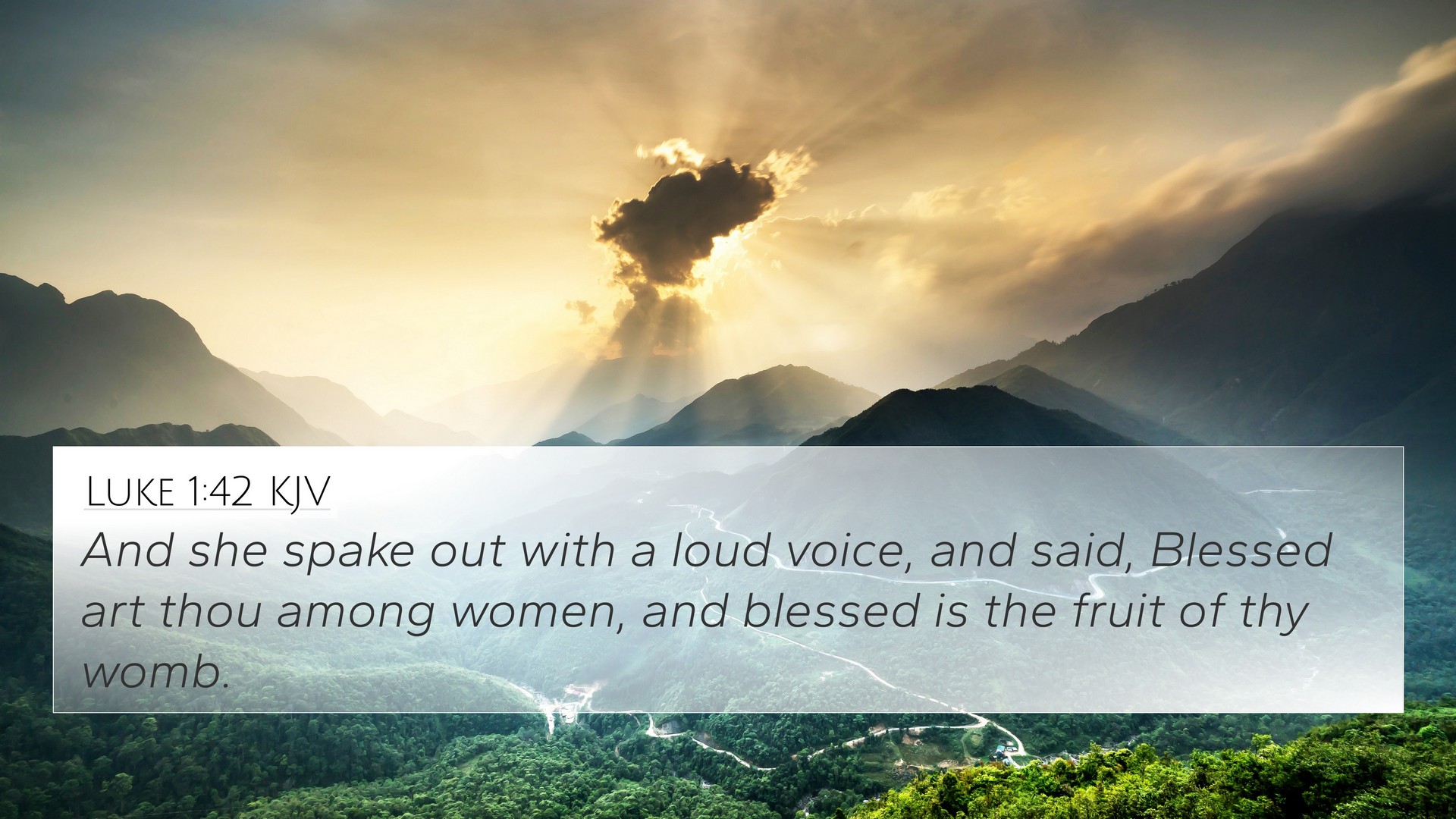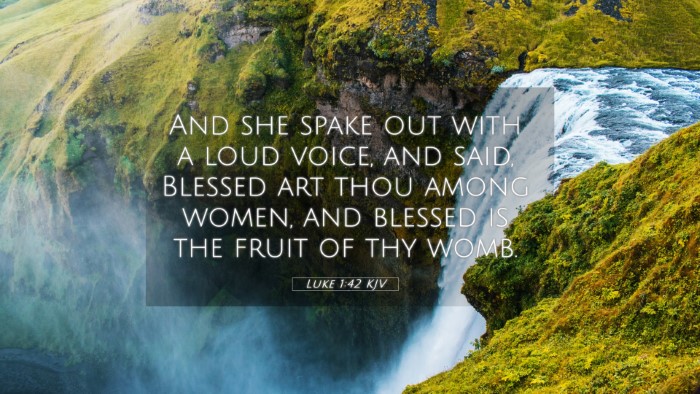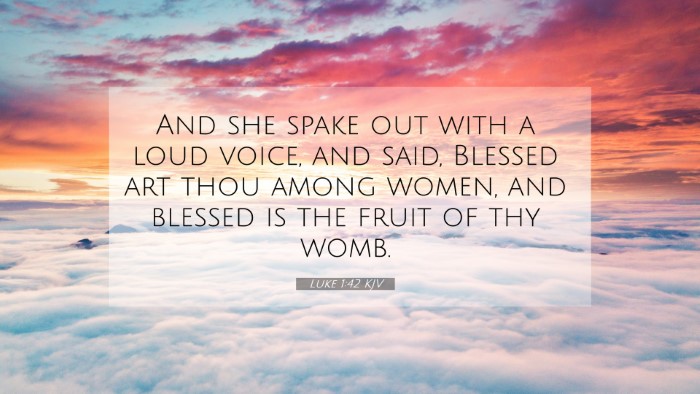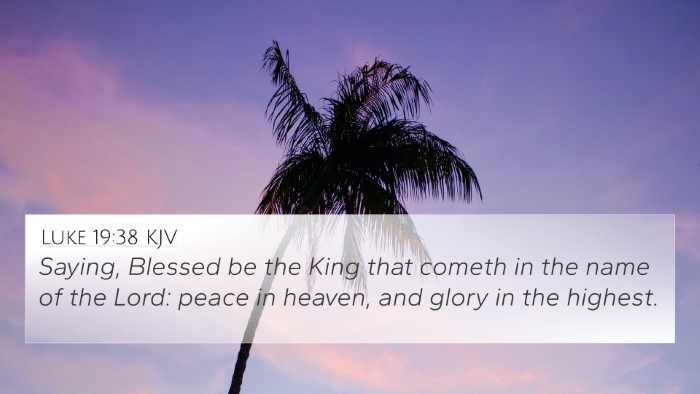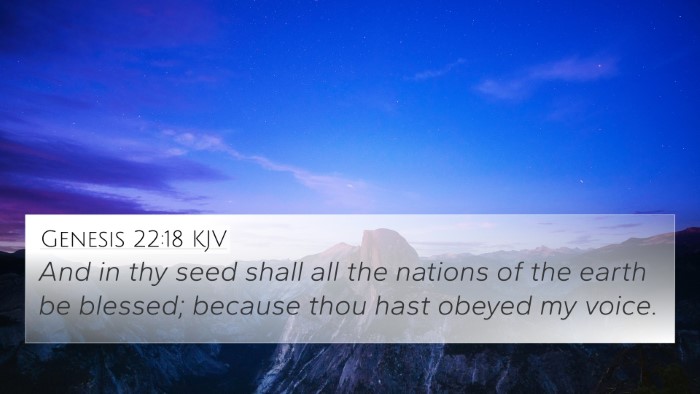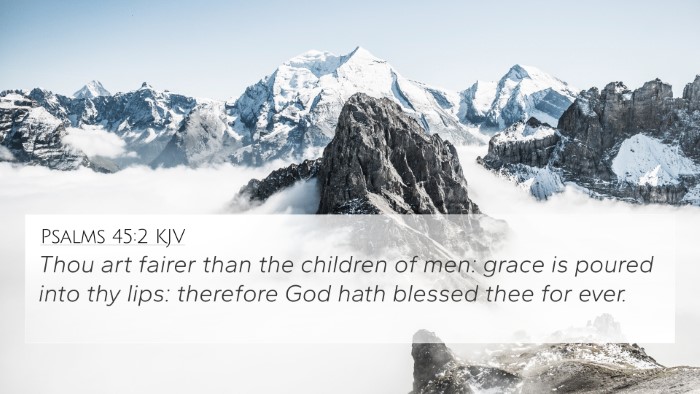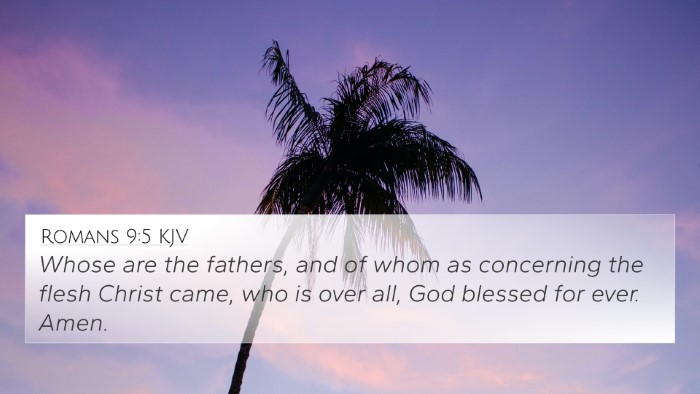Bible Verse Meaning: Luke 1:42
Luke 1:42 states, "And she spake out with a loud voice, and said, Blessed art thou among women, and blessed is the fruit of thy womb." This verse captures the profound moment when Elizabeth, filled with the Holy Spirit, acknowledges Mary's divine blessing as the mother of Jesus. Below is a summarized explanation combining insights from various public domain commentaries.
Summary of Insights
1. The Context of the Encounter: This verse occurs during Mary's visit to Elizabeth, who is pregnant with John the Baptist. The significance lies in the previous angelic announcement to Mary regarding her role as the Mother of God. Elizabeth's declaration affirms Mary's miraculous conception and reinforces the theme of divine intervention in human affairs.
2. The Significance of 'Blessing': According to Matthew Henry, the word "blessed" indicates a state of happiness and divine favor. Elizabeth recognizes that Mary has been set apart by God for a unique purpose and thus shares in that blessedness, emphasizing the joy that comes from being chosen by God.
3. Acknowledging the Fruit: Albert Barnes notes that "the fruit of thy womb" refers not just to Jesus' physical presence but also signifies the blessings He would bring to the world. Mary's child is the promised Messiah, and Elizabeth's proclamation highlights the anticipation of Jesus' future significance.
4. The Role of the Holy Spirit: Adam Clarke emphasizes that Elizabeth's reaction is not just emotional but a spiritual recognition facilitated by the Holy Spirit. This moment illustrates the active role of the Spirit in revealing truths about God's plans and purposes.
5. The Importance of Voices in Praise: Luke 1:42 serves as an example of recognizing and celebrating God's work in others. Both Elizabeth and Mary provide powerful testimonies, encouraging believers to voice their praises and affirmations regarding God's actions in their lives and the lives of others.
Cross References to Luke 1:42
- Genesis 30:13: Leah's declaration of being blessed with a son highlights the joy of motherhood.
- Matthew 1:28: The angel's greeting to Mary connects her blessed status to her significant calling.
- Luke 1:28: Gabriel's message of blessing to Mary echoes Elizabeth's proclamation.
- John 14:14: Jesus, as the fruit of Mary's womb, fulfills His promise to intercede for believers.
- Luke 2:35: Simeon's prophecy concerning Mary's child underlines the gravity of His future impact.
- Romans 1:3: Paul speaks of Jesus' lineage, further emphasizing Mary's blessed role.
- Galatians 4:4: This verse reveals the fullness of time in relation to Christ's incarnation through Mary.
Thematic Connections and Interpretations
This verse connects to broader themes within Scripture, including the celebration of divine blessings, the recognition of God’s work in others, and the role of women in the salvation narrative. It helps unify biblical narratives regarding God's favor and intervention throughout history.
Exploring Connections Between Bible Verses
The relationship between Luke 1:42 and various other scriptures illustrates an important aspect of cross-referencing Biblical texts. To understand the depth of this moment, one can use tools for Bible cross-referencing effectively, discovering parallels and developing a richer appreciation for the gospel accounts.
Tools for Bible Cross-Referencing
To study the connections thoroughly, consider using a Bible concordance or a Bible cross-reference guide. These resources enable readers to find similar themes or narratives found throughout scripture, offering insights into how different biblical authors address similar concepts.
Application for Personal Study
When preparing sermons or engaging in personal study, it can be beneficial to utilize Bible cross-reference systems to uncover deeper meanings within texts. How to find cross-references in the Bible becomes a fundamental skill for those seeking to enrich their biblical understanding.
Conclusion
Luke 1:42 serves as a pivotal moment that underscores the blessedness of Mary and the significance of her son, Jesus. The verses and themes interwoven within the biblical narrative provide rich material for reflection and study, leading to a deeper understanding of God’s unfolding plan for humanity.
